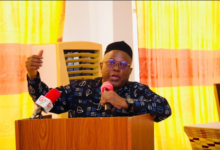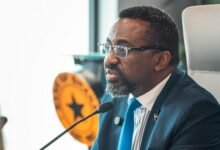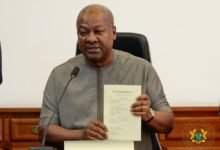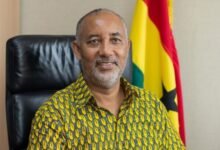Sustain efforts at curbing adolescent pregnancy – UNFPA

THE Country Representative of the UN population Fund (UNFPA), Mr Niyi Ojuolape, has urged stakeholders in the Central Region to press on with ongoing efforts to curb adolescent pregnancy.
He said the UNFPA was ready to support with programmes and interventions to remove barriers from the path of adolescent girls to enable them achieve their full potential in life.
He was interacting with journalists at Komenda-Edina-Eguafo-Abirem Municipality after he joined a delegation from UNFPA, UNICEF and the Canadian High Commission on a three-day visit to assess a three-year joint programme ongoing in the municipality and in 35 districts across the country.
The ‘Empowering Adolescent Girls through Improved Access to Comprehensive Sexual Education (CSE) and Rights-Based Quality Sexual Reproductive Health (SRH) Services in Ghana programme’, started last year, is funded by the Canadian government.
The region has been grappling with teenage pregnancy for years, and was the region with the highest prevalence in the country until it dropped to second place in 2017.
The incidence of teenage pregnancy has reduced by 2,000 from 13,355 cases recorded in 2014, to 11,386 last year, due to collaborative efforts, including UNFPA programmes.
This progress, being made, according to Mr Ojuolape, should inspire the stakeholders to work harder to reduce teenage pregnancy and its attendant issues.
“We are providing sexual education to adolescent girls to enable the young girl attain her full potential and on the whole, the nation will achieve its full potential, the reason is that if you train a girl now, in the future, the country would rest on the adolescent girl.
“So that is why we are focusing on the adolescent girl, and we are using all forms to reach them, through their friends, their parents, churches, the boys and men around them,” he said.
Mr Ojuolape said there was the need for men and boys to help in the agenda for which they had been included in the Sexual Health Education, saying they should understand that sex with under aged girls was illegal.
He said the programme was ongoing successfully and that few challenges observed would be addressed to help achieve the overall objective.
UNICEF Country Representative, Ms Anne-Claire Dufay, said there was the need for continuous engagement with the families and religious leaders, so they could protect the adolescent girls.
The team visited Kissi, Dominase, Komenda Health Centre, and GHASEL Basic School as part of the field trip.
BY JONATHAN DONKOR






